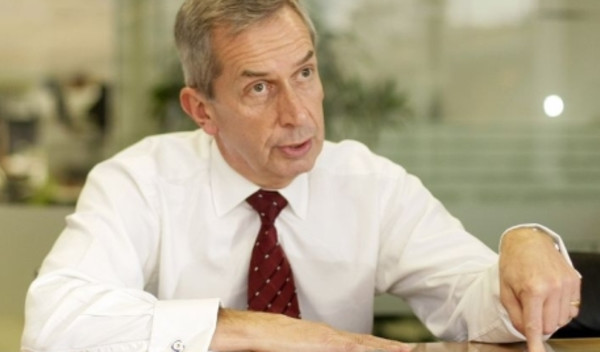

Terry Smith has defended his fund’s underperformance, saying that was difficult to find companies which are both resilient in a downturn and also benefit from a recovery.
Smith’s flagship fund, the Fundsmith Equity fund, posted a 22.1 per cent return for the year to December 31.
Though the £27bn fund does not have an official benchmark, during 2021 it slightly underperformed MSCI World index, which saw a 22.9 per cent return.
Over the past six months it has also underperformed its sector, the IA Global, returning 0.24 per cent while its sector returned 2.71 per cent.
However, the fund still beat the FTSE 100 by 3.7 percentage points.
Fundsmith Equity Fund performance
| Six months | One year | Three years | |
| Fundsmith Equity fund | 0.24% | 13.29% | 66.53% |
| MSCI World | 6.42% | 16.96% | 60.69% |
| IA Global | 2.71% | 9.55% | 54.02% |
Source: FE
In his annual letter to shareholders, Smith said that while underperformance was never welcome, it was “inevitable”.
“No investment strategy will outperform in every reporting period and every type of market condition,” he said.
"So, as much as we may not like it, he added, we can expect some periods of underperformance.
"In investment, as in life, you cannot have your cake and eat it."
The fund manager said part of the reason for the underperformance was his fund’s strong returns in 2020, during the depths of the pandemic.
“Most of the businesses we are invested in proved to be highly resilient,” he said.
“However, last year was more of a year of recovery and our companies had relatively little to recover from.”
In 2020 the fund returned 18.3 per cent, compared with 12.3 per cent seen by MSCI World index.
Smith said there was an argument for trying to trade out of stocks which had benefitted through a downturn and then invest the proceed in those which then do well in a recovery, but he said such a practice did not align with the fund’s ethos.
“The vast majority of the returns which our fund generates come from the ability of the companies we own to invest their retained earnings at a high rate of return because they own businesses with good returns and growth opportunities.
“In our view it would be a mistake to sell some of these good businesses in order to invest temporarily in companies which are much worse but which have greater recovery potential," he said.

Smith added: "Someone once said that no-one ever got poor by taking profits. This might be true but it is doubtful whether they got very rich by this approach either.
"We continue to pursue a policy of trying to run our winners."
'Lost the plot'
Among the fund's worst performing stocks was consumer goods giant Unilever, whose share price is down 9 per cent over the past year and which Smith criticised for its focus on sustainability.
Smith said: "Unilever seems to be labouring under the weight of a management which is obsessed with publicly displaying sustainability credentials at the expense of focusing on the fundamentals of the business.
"The most obvious manifestation of this is the public spat it has become embroiled in over the refusal to supply Ben & Jerry’s ice cream in the West Bank. However, we think there are far more ludicrous examples which illustrate the problem.
"A company which feels it has to define the purpose of Hellmann’s mayonnaise has in our view clearly lost the plot. The Hellmann’s brand has existed since 1913 so we would guess that by now consumers have figured out its purpose (spoiler alert — salads and sandwiches).
"Although Unilever had by far the worst performance of our consumer staples stocks during the pandemic we continue to hold the shares because we think that its strong brands and distribution will triumph in the end."
Paypal’s performance also suffered, amid concerns that its plans to launch a ‘super app’ would lead to a drop in value.
Smith said: “We would prefer if Paypal stuck to its knitting”.
He did mention the fund had bought Amazon shares, a firm he had refused to invest in previously.
Declining to outline specific reasons for the purchase, Smith said he would summarise the decision in a quote from economist John Maynard Keynes who said: “When the facts change, I change my mind.”
sally.hickey@ft.com



